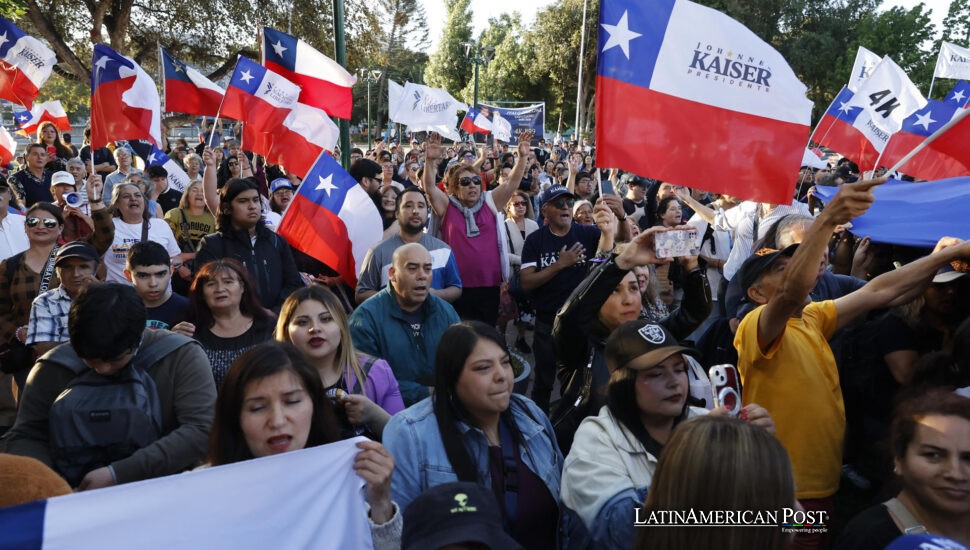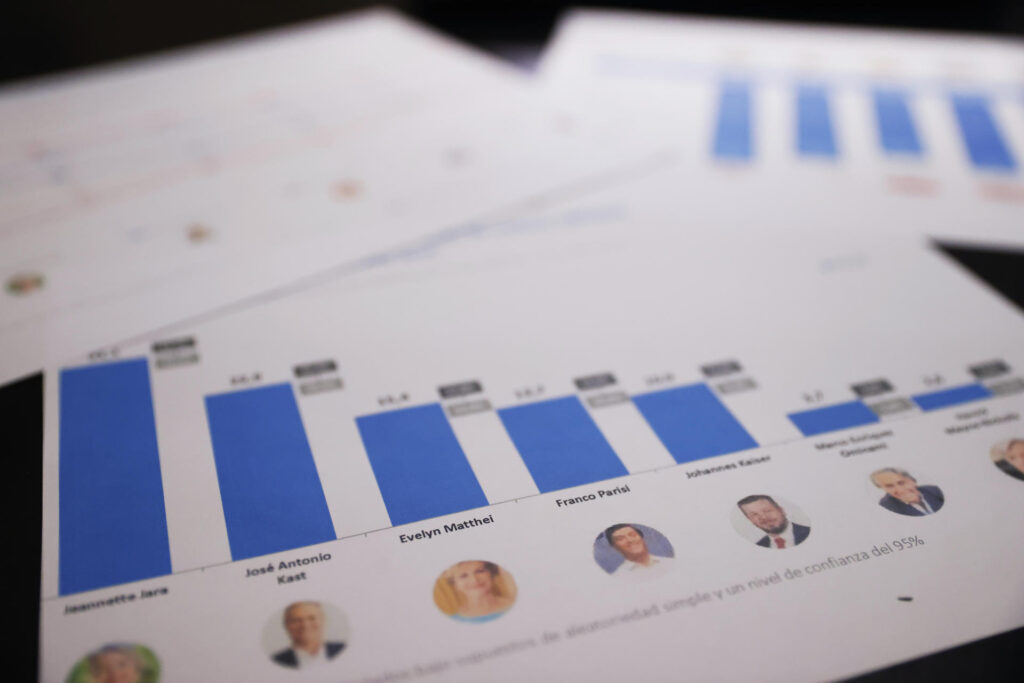Chile’s Two Weeks of Silence: When Democracy Turns Off the Lights

At midnight, the silence begins. Fifteen days before Chile’s presidential election, a sweeping ban on publishing opinion polls descends like a curtain. Newspapers go dark, television anchors avoid numbers, pollsters pack away their graphs. What was once public becomes private, a secret currency traded among campaign insiders and consultants.
The rule, in place since 2016, was meant to shield voters from manipulation. Instead, it has built an invisible wall between citizens and the information that shapes their choices. And as Chile enters this blackout, the nation’s democracy enters something stranger—a conversation where everyone is speaking, but no one knows who to believe.
A Blackout Built to Protect—or to Mislead
From now until election day, no outlet in Chile can publish or cite electoral surveys. The penalties—up to $800 per infraction—are enough to scare editors and silence analysts. The goal is noble on paper: prevent late polls from distorting the race. But in practice, it’s a paradox.
The state’s attempt to reduce noise has created a vacuum, and into that vacuum rushes everything it hoped to exclude: rumors, leaks, fake polls, and partisan spin. Social networks will fill with screenshots of “confidential data,” voice notes claiming insider knowledge, and half-truths about surveys that are long expired. “It’s an anomalous situation,” said Marcela Ríos, regional director for Latin America and the Caribbean at International IDEA, in remarks to EFE. “Chile is above the world average; I don’t know another Latin American country with a similar restriction.“
Most democracies allow a brief quiet period of 1 or 2 days before a vote. Chile’s fifteen-day blackout is exceptional—and, critics say, self-defeating. Political scientist Claudio Fuentes of Universidad Diego Portales told EFE the rule is “unnecessary and absurd,” noting that pollsters keep working anyway. “Results circulate informally and end up on social media,” he said. In short, the ban doesn’t stop influence; it just removes accountability for it.
Winners in the Dark and the Right-Wing Pulse
The last legal snapshots before the curtain fell offered a blurry picture. On the left, Jeannette Jara led most surveys with roughly 30 to 33 percent support—enough to command the field but not enough to win outright. The right, meanwhile, was splintered. Some polls still showed José Antonio Kast, the far-right firebrand, holding second place. Others placed Johannes Kaiser or Evelyn Matthei within striking distance.
Then the lights went out.
From now until the first-round vote on November 16, no one outside the inner circles will know whether Jara’s lead holds or collapses, whether a new debate gaffe or scandal has shifted momentum. Insiders will still have data—private polling commissioned by campaigns and donors. Voters—the very people democracy claims to empower—will not.
Sociologist Alberto Mayol, director of the polling firm La Cosa Nostra, told EFE that while protecting voters is a legitimate goal, “the mistake is to think the solution is the blackout.” He remembers 2021, when major shifts followed the final televised debate—movements that ordinary citizens never saw because publication was banned.
Another analyst, Ricardo González of Universidad Adolfo Ibáñez, warned that the blackout doesn’t erase data—it “privatizes it.” Power flows upward, to those with money and connections, leaving the rest of the electorate guessing. Chile’s silence, he says, is not neutral. It’s political.

Privatizing Knowledge, Deregulating Truth
The blackout would sting less if Chilean polling were robust and transparent before it began. But here, too, the system falters. Unlike Mexico or Argentina, Chile has no binding methodological standards for survey publication—no uniform rules on sample size, funding disclosure, or error margins. The result, says Mayol, is a landscape of weakened methods and blurred lines between science and guesswork.
Ríos told EFE that stronger regulation would do more for democracy than censorship. “Better oversight of methodology would protect voters far more than turning off the flow of information,” she said. But Chile has chosen the opposite: strict silence, loose standards.
This contradiction collides with another significant change—mandatory voting, returning for the first time since 2009. The newly enlarged electorate is unpredictable, complicating pollsters’ models. Yet just as the need for reliable data peaks, Chile pulls the plug. Those with access to private surveys will read the landscape; everyone else will navigate by rumor.
And rumor loves a vacuum. In these two weeks, WhatsApp chains and TikTok “polls” will fill feeds, each claiming to know the truth. Lies will travel faster than corrections. The blackout designed to protect democracy will, ironically, make it more vulnerable to manipulation.
What Chile Should Change Before the Next Silence
Chile does not need to choose between chaos and censorship—it can select standards and transparency. The first fix is simple: shorten the ban to forty-eight hours. The second is structural: demand clarity from every published poll. Each one should register its funding source, sample method, weighting, and field dates on a public database.
Violations should carry severe fines; accuracy should be recognized. Media outlets could display standardized “poll nutrition labels,” letting readers judge reliability at a glance. The state, in turn, could fund a nonpartisan public tracking survey, updated daily and released openly, to ensure that no campaign holds a monopoly over the narrative.
Such measures would not prevent spin—politics thrives on interpretation—but they would restore a common baseline of facts. Democracy does not fear disagreement; it fears the absence of shared reality.
For now, Chile heads into its final stretch with more questions than answers. The electorate is mandatory, the right is fractured, and the left leads but cannot rest easy. The debates will continue, the memes will multiply, and the data will circulate behind closed doors.
“It’s absurd,” Fuentes said to EFE. “The numbers flow anyway, just without responsibility.“
As election day nears, Chile’s silence will grow louder—an orchestra of speculation playing in the dark. What began as a measure to protect the vote now risks muting the very public it was meant to defend.
In a democracy built on voices, no one wins when the microphones are turned off.
Also Read: Mexico’s Reckoning with Consent After the Assault on Its First Woman President





